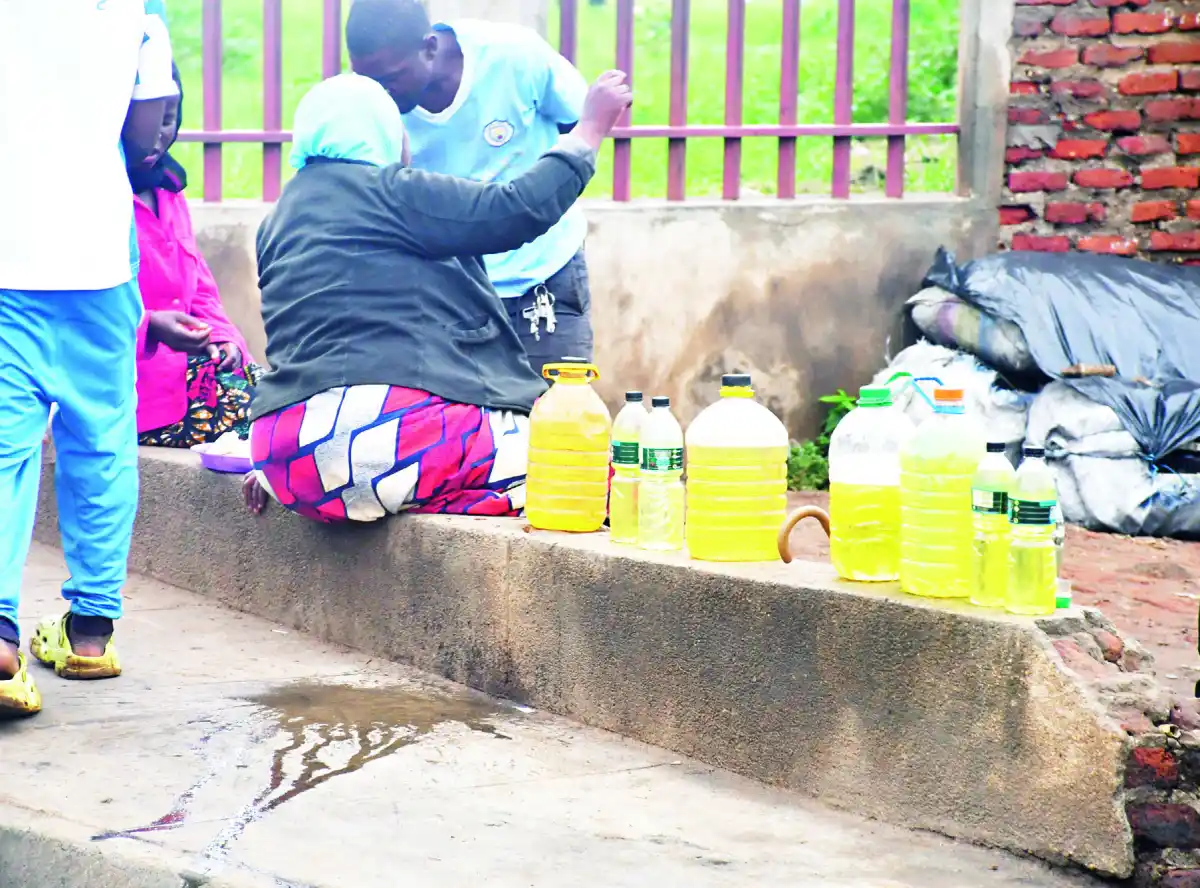

It is 14:13pm on a humid Saturday afternoon at Biwi Triangle in Malawi’s capital, Lilongwe.
As vehicles pass by from within the city towards Blantyre, a group of young men run after cars with jerry cans of petrol in their hands.
This is in the midst of one of the worst fuel crises the country has ever seen.
“K10, 000 pa litre bwana,” says one young man in his early 20s as he peeps through the vehicle’s window.
“Tichotseleni mani, ndikufuna wambiri [give me a discount, am looking for more fuel]. At least K7, 000 per litre,” says an elderly man behind the steering wheel.
“You won’t be able to buy at that price, I have already factored in a discount because many of the vendors are selling at K12, 000 per litre,” the young man replies.
Before he finishes, his colleague offers his petrol to the driver at K9, 500 per litre and a deal is struck for 20 litres at K190,000. Within minutes the fuel is poured into the vehicle’s tank and the motorist is gone.
On the other side of the road, a few women are also seen running after vehicles heading towards City Central Business District (CBD).
Just a stone throw away, queues of motor vehicles have snaked filling stations around the area as motorists hope that the commodity will be delivered soon causing traffic jams on some sections of the road.
Some motorists spend nights on the queues. Since the start of the fuel crisis last October, a strong and lucrative black market has emerged in the country, skinning motorists alive with exorbitant prices.
While Malawi Energy Regulatory Authority (Mera) has maintained the price of a litre of petrol at K2, 530, the black-market operators are selling it at more than double the authorised price. Ironically, this is happening when Mera prohibits purchasing of fuel in jerry cans.
On November 20 last year, Mera banned the buying of petrol in jerrycans or drums from any fuel service station across the country as one way of complementing the efforts of fuel importers to restore the security of fuel supply in the shortest period.
When asked where they are getting the fuel, one young man reacts angrily: “Pangani zanu man. Tikakudyerani kuti ifeyo. [Mind your own business.]”
Another illegal vendor only said: “Ndi wa biggy”, meaning the fuel is owned by a big man somewhere.
Asked further he said: “Pali ma biggy ambiri chief. Ena ogwira ntchito muma filling station mu, ena eniake a njinga za kabaza, enanso a ma galimoto. Amagula mafuta ndikumakapanga drain. [There are a number of big bosses. Some work in filling stations, others own bicycle taxis while some own vehicles. They buy fuel and drain it from the vehicles and give us to sell.]”
For those lucky ones, they buy pure fuel. But for the unlucky ones, they buy the comodity mixed with other substances or chemicals which eventually damages vehicles.
In a recent interview, Mera Chief Executive Officer Henry Kachaje said his organisation is aware of the malpractice.
According to Kachaje, Mera has issued several notices to the general public warning people that it is against the law for anyone to sell petroleum products without a licence, nor selling at a price above the set maximum price.
“The responsibility to enforce applicable laws is the mandate of the legally instituted government arms such as the Malawi Police Service (MPS). Mera has engaged and written MPS to help enforce compliance with the applicable energy law,” Kachaje said.
Consumers Association of Malawi (Cama) Executive Director John Kapito said it is difficult to crack down, the black market as it might be controlled by senior individuals.
“When you see fuel on the black market, it is not about the person selling it. There is someone senior behind that business—it might even be the police themselves. So, sometimes, someone might be tempted to act but could end up putting themselves in danger,” Kapito said.
National Police spokesperson Peter Kalaya said police is doing its part on enforcement.
“We have officers moving around different areas and arresting anyone found selling fuel illegally,” Kalaya said.
Natural Resources Committee of Parliament Chairperson Werani Chilenga believes hiking the price of fuel would help improve availability of the commodity at the recommended price in filling stations.
One thing for sure is that motorists are paying dearly for the fuel crisis. It’s either they spend sleepless nights at the pump or pay through the nose to black market operators.








0 Comments